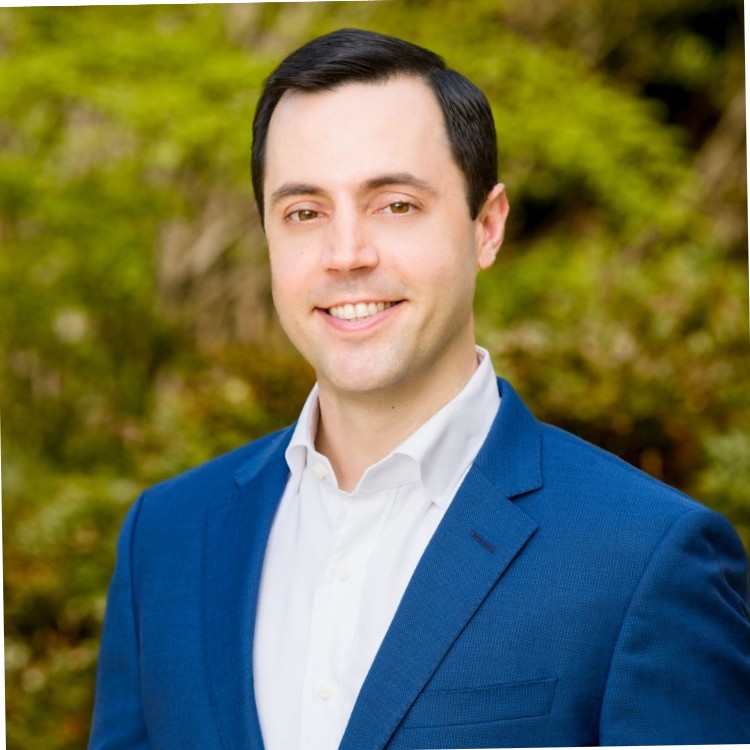The healthcare industry today faces intersecting crises – from skyrocketing costs to overwhelmed providers which jeopardize care quality and access. Patient populations are expanding alongside a prevalence of increasing complex chronic conditions. Meanwhile administrative overload and regulations displace focus from clinical care. This landscape urgently requires systems-level transformation powered by technological innovation.
As artificial intelligence (AI) gains traction in the healthcare space, many pin hopes on its potential to overhaul inefficient legacy infrastructure. Forward-thinking healthcare tech executives now pioneer frameworks for proven adoption and integration. Their cross-functional vision and problem-driven design signal a model for change-makers industry-wide. The approaches spearheaded by these digital health leaders lay early rails toward more accessible, affordable, and effective care paradigms.
The Role of Visionary Tech Leadership
With transformation imperatives mounting, visionary CIOs and CTOs hold unique power to shape AI deployment for impact at scale. Yet realizing game-changing adoption first requires reimagining technology leadership and decision-making itself. Visionary executives are dissolving outdated divides separating clinical, operational, and technical realms through embedded collaborative structures.
Rather than siloed IT administrators, pioneering tech leaders embrace expansive general management roles converging insights across specialties. They forge cross-functional teams between providers, administrators, strategists, analysts, and technologists focused on workflow friction points ripe for solutions.
Innovation Hubs: Incubating Solutions with Interdisciplinary Teams
Visionary healthcare systems are forming innovation hubs that convene a diverse group of stakeholders under one roof to foster dynamic co-creation of solutions tailored to pragmatic user needs. They lead with a problem-first approach to AI adoption.
For instance, in Georgia, Emory Healthcare and Wellstar Medical Group have been leading the charge with their innovation hubs that cultivate special interdisciplinary project teams that lead structured problem discovery and ideation processes.

They conduct surveys, workshops, and observations to pinpoint operational pain points directly from staff on the frontlines. Cross-functional insights illuminate overlooked friction areas and improvement opportunities.
Ideation then generates a portfolio of proposed prioritized requirements matched to demonstrated needs. Cross-departmental teams filter and prioritize initiatives with the greatest potential workflow impact and adoption viability using rapid prototype sprints.
These idea incubators create feedback loops for continual enhancement attuned to evolving clinical realities. By fostering detached teams focused explicitly on problem-centric design, hubs unlock solutions once throttled by bureaucracy and siloes. Their framework drives innovation through intersectional cooperation.
External Partners: An Innovation Multiplier
Establishing innovation hubs and transformation teams can be highly valuable for healthcare organizations across the size spectrum – from small community hospitals to large integrated healthcare delivery networks.
In many cases, healthcare systems may not possess the experience, organizational structure, or bandwidth to deploy an innovation hub.
Alongside internal efforts, both small and large leading health systems increasingly court experienced partners. Prinnovo, headquartered in North Carolina, is a great example. They establish, staff, and manage venture offices and innovation centers for mid-size healthcare groups in the Southeast. Prinnovo offers full-service builds of new healthcare innovation hubs for clients seeking to catalyze results across the size spectrum.

By providing leadership bench strength, VC portfolio management, and administrative infrastructure, these strategic partners enable health organizations of all sizes to plug into transformative solutions meeting their unique strategic needs. Specialists alleviate resource constraints holding back innovation appetite whether a small regional hospital or an expansive network.
The multiplier effect of blending internal priorities with specialized outside capacity in innovation unlocks new dimensions of transformation potential system-wide. In leveraging dedicated partners, forward-looking health networks accelerate value and progress through reinvention.
Problem-Centric Design: Targeting Solutions to Demonstrated Needs
These leading organizations prioritize understanding specific challenges before seeking technological solutions. Northeast Georgia Hospital System exemplifies this approach with its network of over 1,200 physicians across four hospitals and 76 locations. They partnered with Prinnovo to launch their venture office.
Central to their strategy is the use of open forums, gathering staff to pinpoint and discuss the system’s pain points as the first step in adopting AI and other technologies. This approach ensures that technological interventions are targeted and meet actual needs.

Adoption then accelerates as staff sees custom-fit tools versus disjointed tech imposed from above. Leading with challenges re-envisions possibilities more imaginatively than leading with capabilities. It is less about how we apply AI, than where AI can help us. Excellent innovation stems from questions, not just capabilities.
Startup Partnerships: Driving Hardship into Headway
Once leaders identify priority areas for optimization, partnerships with nimble startups can turn hardship into progress at record speeds unattainable within bureaucratic health systems.
By collaborating with emerging tech ventures through accelerator programs and pilot funding channels, health networks gain invaluable visibility into disruptive technologies years before widespread release. Startups move at pace matching healthcare’s mounting urgency, rapidly iterating to ease adoption pain points through focused automation. Partners co-design compatible interfaces bridging old and new enterprise stacks while collecting continuous feedback in live testing.
Though startups carry uncertainty, the model offers an indispensable testing ground for next generation systems. Forward-thinking leaders strive to gain first-mover advantage by quickly adopting what works.
A great example of this model is Vituity, a physician owned and led healthcare network with over 5,000 providers across more than 450 locations nationwide. They launched Inflect Health, to serve as their venture and incubator arm. Inflect partners with early-stage startups, fostering an environment where innovation can thrive.

Bart Emery, a senior corporate development executive at Inflect Health, highlights the significance of their approach: “By partnering with and investing in early-stage startups in a flexible manner, Inflect has been able to bring the most innovative technologies into our practice.”
He further explains the benefits of this strategy: “While helping startups mature their value proposition, we have cultivated a startup mentality that allows us to test new ideas, embrace uncertainty, and learn from failure. The process is difficult, but the benefits of our program are far-reaching.” This approach, according to Emery, is instrumental in driving long-term success.
Another prime example is Emory Healthcare, which partnered with 11TEN Innovation Partners to implement an Innovation Hub model. This initiative focuses on collaboration across the healthcare industry to develop and introduce new solutions, therapeutics, and technologies.

The ecosystem created by 11TEN and Emory Healthcare now includes healthcare systems, payers, life science companies, and digital health organizations, all working together to foster innovation.
James Lewis, CEO of 11TEN Innovation Partners, explains, “Our Demand-Driven Innovation™ model enables healthcare and life science companies to accelerate innovation, market activation, and digital transformation”, highlighting their strategic approach to advancing healthcare solutions.

Sector-Wide Implications: A Model for Cross-Industry Innovation
While integration remains early, healthcare’s pioneering frameworks illustrate sector-wide relevance as a model for technology adoption done right. Their inside-out approach of identifying pain points, then co-developing targeted solutions through external and internal partnerships provides a universal blueprint for change-makers operating amid market evolutions in the age of AI augmentation.
Observers note that innovation in healthcare could blaze a trail for other industries such as finance, retail, manufacturing, and other verticals that are also facing disruptive change. The expanding C-suite mandates, cross-departmental hubs and nimble startup partnerships provide both inspiration and tactical guidance for leaders industry-wide seeking to future-proof operations.
The Wrap
Fundamentally, the journeys of pioneering health systems covered in this piece illustrate that instead of seeking finished solutions, the most effective adoption occurs when leaders first reframe challenges then activate an ecosystem of change-makers toward possibilities. No one technology vendor or silver bullet holds all the answers in disrupted times.
In that sense, today’s healthcare innovators offer the world a new framework for leading differently amid ambiguity – one poised to propel industries well beyond the horizon of current imagination. Their daring work collapsing silos while integrating technologists into the heart of operations provides a guidepost for unleashing new dimensions of efficiency, access, and discovery by transplanting future technologies into the bedrock of human priorities.
While questions and kinks endure, the system-wide transformations seeded by these daring leaders promise to take us further still on the unfolding journey to augment human potential with technology thoughtfully applied.






